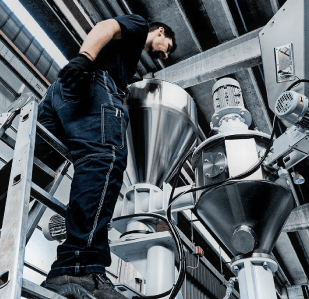Polyvinyl Chloride (PVC) is one of the most versatile and widely used plastics in the world. It is a thermoplastic polymer formed by the polymerization of vinyl chloride. Thanks to its unique characteristics, such as durability and versatility, PVC is a preferred choice in numerous industrial and everyday applications.
Characteristics of Polyvinyl Chloride (PVC)
PVC is known for its numerous properties, making it a material of choice:
- Chemical resistance: PVC is resistant to many acids and bases, making it ideal for pipes and other products requiring chemical resistance.
- Durability: It is a robust material resistant to weather conditions, which is why it is widely used in outdoor applications.
- Flexibility: PVC can be rigid or flexible, depending on the additives used, offering a wide range of applications.
What is Polyvinyl Chloride (PVC) used for?
PVC is used in a wide range of industries due to its versatility:
- Construction: It is used to produce pipes, windows, flooring, and insulating materials.
- Packaging: It is employed in the production of plastic films and packaging materials due to its ability to protect products.
- Electronics: PVC is often used to insulate electrical cables thanks to its electrical resistance and ability to withstand high temperatures.
How does Bausano work with Polyvinyl Chloride (PVC)?
Bausano designs and manufactures customized extrusion lines for PVC processing, ensuring precision, quality, and sustainability at every stage of the process. Our cutting-edge technologies transform PVC into products for sectors such as construction, packaging, and electronics, providing tailor-made solutions to meet every client's needs. Together, we build the future of PVC.



